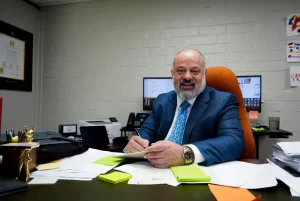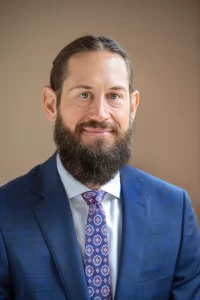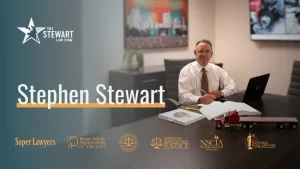Jason Feltoon
Franchise Lawyers
Jason started Feltoon Law, PLLC to create a client focused law practice that upholds strong ethical principles. He operates Feltoon Law with the belief that the needs of the clients must always be placed above the needs of the firm.
At Feltoon Law, we work tirelessly to make a meaningful difference in the lives of personal injury victims and their families. We believe in the power of forming strong relationships with our clients and work hard to provide tailored legal services, around the clock accessibility, and to closely monitor every one of our cases. To us, success is not solely determined by legal wins, but through providing the utmost support for our clients in the aftermath of their loss.
Bertha Faudoa
Franchise Lawyers
Bertha (Archer) Faudoa was born and raised in El Paso, Texas. She graduated from Southwestern University in Georgetown, TX in 2015. Bertha went on to earn her Juris Doctor from New England Law | Boston in 2019. Bertha passed the Texas bar in 2019 and was admitted to practice before the Western District of Texas shortly thereafter.
Bertha has been a passionate advocate for the Hispanic community for as long as she can recall. As the daughter of an immigrant, she has always had a deep interest in helping the immigrant community navigate convoluted and complicated legal issues. She spent numerous years working in the practice area of immigration law but ultimately decided to change fields to where she could help a larger volume of people. Bertha decided to join the team in 2023 and help advocate for personal injury claimants in Texas. Because of her fluency in both English and Spanish, she can help a large volume of Texans find justice regardless of language barriers.
In her free time, Bertha enjoys spending time with her husband and their 3 babies, one humankind and 2 doggie-kind. When she is not spending time with her family, she likes to fill her time learning new skills like crocheting or building furniture. Bertha’s passion for learning has currently led her to enroll at Rowan University, where she will earn a Master’s in Business Administration.
Jacob C. Cadena
Franchise Lawyers
Born and raised in The Valley, Mr. Cadena holds a Bachelor’s of Science from The University of Texas-Pan American and obtained his Juris Doctor at the Western Michigan University Thomas M. Cooley Law School. Mr. Cadena has displayed an outstanding dedication to our clients since joining the firm as an associate attorney in 2022.
Mr. Cadena takes pride in working with our team of attorneys representing a wide variety of clients, from those injured in motor vehicle collisions to premises liability cases against billion-dollar corporations. Mr. Cadena’s leadership helped drive the aggressive growth and success of our Austin office, and he continues to fight for our clients with that same aggression and sense of urgency. Before his time at Batrice Law Firm, Mr. Cadena mentored the next generation of attorney advocates, fostering a community of camaraderie within the firm and a deep commitment to the aggressive pursuit of our clients’ interests.
Outside of work, Mr. Cadena enjoys the food and drink scene Austin has to offer. You can find him at a sporting event or spending time with his dog, a Chow Chow named Beau.
Nicole M. Conger
Franchise Lawyers
Nicole M. Conger is an Employee Rights Attorney who represents clients across Texas who are subjected to illegal treatment with their current or former employers. Nicole received her law degree Magna Cum Laude from St. Mary’s University School of Law in 2011 where she was an Associate Editor for the St. Mary’s Law Journal, member of the Board of Advocates, as well as, clerking for the Honorable Emilio M. Garza on the United States Court of Appeals, Fifth Circuit.
Nicole founded her law firm with the goal of enabling employees to determine the best course of actions, by transparently advising them on the merits and drawbacks of their cases. She promotes the notion that it is well past time to end discrimination and afford unbiased opportunities to individuals at every state of their lives. Nicole works tirelessly and with energy that is contagious because she cherishes and appreciates clients and her career. Nicole offers generous amounts of time, clarity, and follow-through at each stage of the process.
The Diversity Council recognized Nicole as one of the Top 50 Women in Law. Nicole was also recently elected as a Fellow in the Texas Bar Foundation. Each year, the Foundation invites the top one-third of 1% of Texas attorneys to become Fellows as one of the highest honors.
Drew Gibbs
Franchise Lawyers
Josh Fogelman has been an Austin personal injury lawyer since 2009. He enjoys helping his clients understand their rights and responsibilities after being injured, and working with his clients to develop a practical strategy that makes the most sense under their unique circumstances. He gets great satisfaction and fulfillment from providing guidance to people who need good advice, and believes personal injury law is his calling. He, along with partner Aaron Von Flatern, founded FVF Law Firm – Injury & Wrongful Death Lawyers.
Josh was born and raised in Austin. He graduated from the University of Texas at Austin in 2005, and got his law degree from Baylor in 2008. In law school, Josh earned a variety of academic accolades and distinctions. After law school, Josh served as a briefing attorney for the Honorable Justice Harriet O’Neill at the Texas Supreme Court, a highly distinguished honor. Through his commitment to providing exceptional legal representation and service, Josh earned his place as a member of the Multi-Million Dollar Advocates Forum®, recognition as a Texas Super Lawyers® every year from 2014 -2021 and Texas Super Lawyers® since 2022, a perfect 10.0 Avvo rating, and perfect 5-star ratings on Yelp and Google.
Robert P. Nunis
Franchise Lawyers
Bob was born and raised in Austin (fifth generation). He served in the U.S. Air Force and was awarded an Outstanding Leadership Commendation. Bob is a Life Fellow of the Texas Bar Foundation, is a member of the Litigation Section and Consumer and Commercial Law Section of the State Bar of Texas and the Austin Bar Association.
T. Wade Jefferies
Franchise Lawyers
In 2017, after working over 21 years and becoming a partner at a highly respected Austin boutique litigation firm, I founded my own private practice, The Law Firm of T. Wade Jefferies, to help individuals and businesses throughout Texas efficiently resolve commercial, civil, divorce, and family law disputes.
I am an accomplished and seasoned litigator who focuses on commercial litigation, civil litigation and family law throughout Texas. I have represented numerous individuals in multi-million dollar disputes including representing a real estate company against John Wooley, Schlotzsky’s CEO at the time; representing a well-known Austin architect and builder in settling a Judgment obtained by Sandra Bullock; representing a competitor of Waste Management Services in a lawsuit against Waste Management Services; representing a partner in an Austin-based consulting firm to life insurance companies in a lawsuit against his partner; and representing a multi-national health supplement provider in a dispute against his partner. I was also an integral part of a team of lawyers who obtained a $180 million judgment against Health Net, Inc, a large California based health care provider.
I also represent several businesses as their “outside” in-house counsel.
In addition, I have successfully handled numerous family law matters. I have represented numerous high-wealth individuals going through a divorce. In one case, after trial, the Court granted my client over 60% of the community estate plus close to $100,000.00 in attorney’s fees. In numerous high-asset divorce cases, I have represented the wives with husbands who own successful businesses. The husbands generally claim that the businesses have no real value. With my accounting background and commercial litigation experience, I was able to determine the actual value of the business and reach a settlement favorable to my clients. Going through a divorce several years ago, I was exactly where my family law clients are and, because of that, I can offer empathy and help in a way that is unique and solution oriented.
Stephen Stewart
Franchise Lawyers
I don’t need to rip the jugular in a deposition to get what I need for my client. I can flay people without them knowing it, and they’ll smile and thank me after.
And I get giddy thinking about the good we can do for our clients, and the harm we can prevent from happening to other people down the road.
I’m in the business of holding people accountable so that we can have a world where we don’t see this type of negligence happen anymore.
But until that happens, I have the honor of working with some of the kindest people in the world, getting them the justice they deserve.
- Texas Super Lawyer, 10+ years
- National Trial Lawyers—Top 100
- National Crime Victim’s Rights Medal of Honor Recipient
- Star Volunteer Award—MADD
- Outstanding Service Award—Crime Victims First
Understanding the 6 Different Types of OSHA Violations
Understanding the various types of OSHA (Occupational Safety and Health Administration) violations is crucial for employers and employees alike. OSHA regulations are designed to ensure workplace safety and health, and violations can lead to serious consequences, including fines and legal action. This article will delve into the six different types of OSHA violations, their implications, and what businesses can do to avoid them.
1. De Minimis Violations
De minimis violations are the least severe category of OSHA violations. These are technical infractions that do not pose any direct threat to employee safety or health. For instance, a de minimis violation might involve a minor issue such as a ladder with rungs spaced 13 inches apart instead of the required 12 inches.
Implications
While de minimis violations do not incur monetary penalties or citations, they are noted in the inspection report. Employers should still address these issues to maintain compliance and demonstrate a commitment to workplace safety.
2. Other-Than-Serious Violations
Other-than-serious violations are more significant than de minimis violations but do not pose an immediate threat to employee safety. Examples include failing to post required safety notices or improper storage of materials.
Penalties
The penalties for other-than-serious violations can range from no fine to approximately $16,131 per violation, depending on various factors such as the employer’s history and cooperation during inspections. Employers should take these violations seriously, as they can indicate underlying issues that may lead to more severe problems.
3. Serious Violations
Serious violations occur when there is substantial likelihood that death or serious physical harm could result from a hazard that the employer knew or should have known about. Common examples include inadequate fall protection or failure to provide proper safety gear.
Penalties
The maximum penalty for serious violations can be up to $16,131 per violation. The severity of the fine may be adjusted based on factors like the size of the business, previous violations, and the employer’s level of cooperation with OSHA. Given the potential for severe consequences, addressing serious violations promptly is essential.
4. Willful Violations
Willful violations represent a significant disregard for OSHA regulations. These occur when an employer knowingly fails to comply with safety standards or acts with plain indifference to employee safety. For example, using faulty scaffolding despite knowing its risks would qualify as a willful violation.
Penalties
The penalties for willful violations are severe, with fines reaching up to $161,323 per violation. If a willful violation results in a fatality, it can escalate to criminal charges against the employer, which may include hefty fines and potential jail time.
5. Repeated Violations
Repeated violations occur when an employer has been previously cited for a similar infraction within the last five years and fails to correct it. This category emphasizes the importance of addressing past issues effectively.
Penalties
The penalties for repeated violations mirror those of willful violations, reaching up to $161,323 per infraction. Employers must maintain clear records of past citations and ensure that corrective actions are taken to avoid repeated offenses.
6. Failure to Abate Violations
Failure to abate violations arise when an employer does not rectify a previously cited violation by the specified deadline set by OSHA. This type of violation underscores the importance of timely compliance after receiving citations.
Penalties
For each day that an employer fails to address an abatement order after the deadline, they may incur additional fines of up to $16,131 per day. This penalty structure serves as a strong incentive for employers to prioritize compliance and resolve issues promptly.
Importance of Compliance
Understanding these six types of OSHA violations is essential for maintaining a safe workplace environment and avoiding legal repercussions. Employers must proactively identify potential hazards and implement effective safety measures to ensure compliance with OSHA regulations.
Strategies for Avoiding Violations
- Regular Training: Conduct regular training sessions for employees on workplace safety practices and OSHA regulations. Keeping everyone informed helps prevent unintentional violations.
- Safety Audits: Perform regular safety audits to identify potential hazards and rectify them before they become formal citations.
- Documentation: Maintain thorough documentation of all safety protocols, training sessions, and any incidents that occur in the workplace. This documentation can be crucial if an inspection occurs.
- Employee Involvement: Encourage employees to report unsafe conditions without fear of retaliation. A culture of open communication fosters a safer work environment.
- Consulting Experts: Consider hiring safety consultants or legal experts specializing in OSHA regulations to help navigate compliance requirements effectively.
- Prompt Action on Citations: If cited for any violation, take immediate action to address the issue before the abatement deadline expires.
Conclusion
Navigating OSHA regulations can be complex, but understanding the six types of violations is crucial for employers aiming to foster a safe workplace environment while avoiding penalties. By prioritizing compliance through training, audits, documentation, and open communication with employees, businesses can significantly reduce their risk of facing OSHA citations and contribute positively to workplace safety culture. Ultimately, taking proactive steps not only protects employees but also enhances overall organizational efficiency and reputation in the industry.












